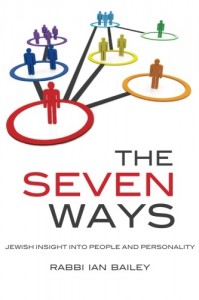The #1 Thing on Your To Do List
Emor: Always Do This First
Printable PDF: Emor-Validate Validate Validate
Have you ever stated your opinion, only to have someone interrupt and change the subject? Have you ever shared what you thought was an incredible idea, and a coworker immediately struck it down in favor of something less reasonable? Perhaps you or I have been guilty, at a meeting, of neglecting to explore the idea of someone who spoke before us. Though these interactions may be subtle, they can have a huge impact on the beginning of a conversation, and, consequently, your relationship with others in the workplace or at home.
 By nature we do not like to feel rejected nor do we like to lack a place to call home. We wish to feel like our existence is valid and that our home place is readily available to us. On a relational level, when we share with others, we have a desire to be heard and, initially, validated.
By nature we do not like to feel rejected nor do we like to lack a place to call home. We wish to feel like our existence is valid and that our home place is readily available to us. On a relational level, when we share with others, we have a desire to be heard and, initially, validated.
The Torah recounts the brief story of man who pronounces a curse that includes one of G-d’s names (24:10-11), which is against Jewish law. One of the reasons given for his act of anger is that, due to his particular ancestry, he is unable to pitch his tent in any specific part of the Israelite camp[1]. This man could have benefited from validation and the feeling that he has a safe home to live in. That having been said, it is important to note that it is his own decision to cross the line and commit a heinous crime. There must be a balance; we can only validate insofar as people are helping themselves and acting constructively.
The idea of validation relates to the sefirot/middot, as chesed is not simply the first sefirah, which comes before gevurah; it is, as a concept, the first step in any process. It represents the initial ‘yes’ in a brainstorm to gevurah’s ‘no’; it means that something exists, while gevurah describes any adversity that may encounter that particular something; it validates, where gevurah and its companion din (judgment) look for reasons to invalidate.
When others share with us, the first thing we do should be to find a reason to agree and simply keep listening. Later, if the situation happens presents itself, the proper time to do actions of gevurah as well as the other middot will be apparent. Even at a heated planning or staff meeting in your office, where the great business consultant Patrick Lencioni says that heated discussion is essential, the group should make an effort to validate, though quick invalidating arguments will follow.
 Immediate dissent gives off negative vibes and categorically tells the speaker that you don’t care what they have to say; it will bounce off the listener like raindrops off of a latex poncho. When someone shares a personal feeling, the response “Well, in my life I…” won’t get very far—sharing personal experiences only helps at the right time; comments that essentially express the message “Get over it” aren’t likely to foster effective treatment of upset feelings; Changing the subject is rude and completely invalidates the speaker. Effective and polite communication begins with validation. For your marriage, business, or friendships, perfect the art of validation.
Immediate dissent gives off negative vibes and categorically tells the speaker that you don’t care what they have to say; it will bounce off the listener like raindrops off of a latex poncho. When someone shares a personal feeling, the response “Well, in my life I…” won’t get very far—sharing personal experiences only helps at the right time; comments that essentially express the message “Get over it” aren’t likely to foster effective treatment of upset feelings; Changing the subject is rude and completely invalidates the speaker. Effective and polite communication begins with validation. For your marriage, business, or friendships, perfect the art of validation.
Just remember: chesed then gevurah. Validate, validate, validate.
IB
[1] Tanchuma 24, Vayikra Rabbah 32:3.
 By nature we do not like to feel rejected nor do we like to lack a place to call home. We wish to feel like our existence is valid and that our home place is readily available to us. On a relational level, when we share with others, we have a desire to be heard and, initially, validated.
By nature we do not like to feel rejected nor do we like to lack a place to call home. We wish to feel like our existence is valid and that our home place is readily available to us. On a relational level, when we share with others, we have a desire to be heard and, initially, validated. Immediate dissent gives off negative vibes and categorically tells the speaker that you don’t care what they have to say; it will bounce off the listener like raindrops off of a latex poncho. When someone shares a personal feeling, the response “Well, in my life I…” won’t get very far—sharing personal experiences only helps at the right time; comments that essentially express the message “Get over it” aren’t likely to foster effective treatment of upset feelings; Changing the subject is rude and completely invalidates the speaker. Effective and polite communication begins with validation. For your marriage, business, or friendships, perfect the art of validation.
Immediate dissent gives off negative vibes and categorically tells the speaker that you don’t care what they have to say; it will bounce off the listener like raindrops off of a latex poncho. When someone shares a personal feeling, the response “Well, in my life I…” won’t get very far—sharing personal experiences only helps at the right time; comments that essentially express the message “Get over it” aren’t likely to foster effective treatment of upset feelings; Changing the subject is rude and completely invalidates the speaker. Effective and polite communication begins with validation. For your marriage, business, or friendships, perfect the art of validation.